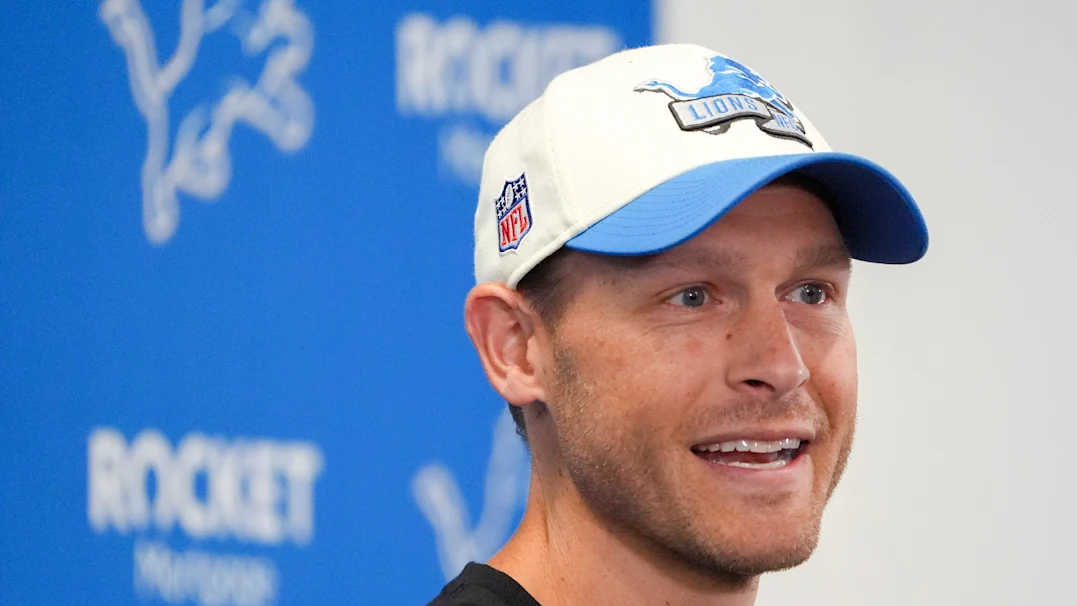My guess, like all of these seismic moments in the 2025 NFL offseason, is that those inside Halas Hall are probably the least surprised that Ben Johnson ended up selecting the Chicago Bears as his ultimate destination.
Despite Johnson being the preferred choice in at least one and possibly two other locales, he chose a solid roster, the quarterback with the highest upside, arguably the best offensive line and a division that he is intimately familiar with. For the Bears, this should be considered an absolute win with no qualifications. Regardless of how Johnson turns out, he has been the league’s best and most entertaining offensive coordinator in each of the past three seasons. He was heavily desired by the Carolina Panthers after the 2022 season, by the Washington Commanders after the ’23 season and by the Las Vegas Raiders and Jacksonville Jaguars after the ’24 season, a buildup we have not seen in the coach hiring business since Adam Gase or Josh McDaniels Part II. He has made a brand name out of football that is legitimately entertaining for both the passerby enjoying the absurdity of a flea-flicker or a fake stumble, and for those who feel the hair stand up on the back of their necks for a unique take on blocking an outside run.
Everything will change the moment Johnson steps to the lectern and utters his first words in navy and orange, but the interview process was seen as a kind of organizational litmus test given that Johnson was highly selective and wasn’t shy about painting a picture of what he wanted (in short: the closest thing the NFL can offer to sanity and rationality). Every component of an NFL organization has its own Super Bowl. For the scouts, it’s a draft. For the PR department, it’s the Pete Rozelle Award. And for the Bears’ front office, owner and team president, putting forward a robust and diverse search that concluded with the hiring of Johnson is tantamount to their own silver trophy.
What’s fascinating about this moment, of course, is the deeply embedded uncertainty. Sure, we can say that about any first-time head coach. There are those who ascend neatly to the chair and those who wilt when removed from the sensible world of scheme, play-calling and design, forced to argue about the merits of the team’s official airline, which hotel they will be staying at in Miami and what time the curfew should be on the road. It’s one of the strangest ascensions in all of sports, when someone is taken out of the job they are brilliant at and asked to, essentially, help run a $5 billion business.
But with Johnson, in particular, he is coming from a destination that built for him the best offensive line in the sport, a stable of dominant skill-position players—Sam LaPorta is, like, the team’s fourth-best option in the passing game—and operated under a cult of personality in head coach Dan Campbell, who changed the way teams viewed what’s possible from the position.
This is not to take away from Johnson’s “Bohemian Rhapsody”–length trick-play mixtape, his glass case full of offensive records, or the way he took on Jared Goff and tailored an offense that made him a borderline MVP candidate. And, certainly, there is a possibility that part of the reason we are so enamored with LaPorta, Jameson Williams, Amon-Ra St. Brown and Jahmyr Gibbs in the first place is because Johnson kept coming up with ways to put them in open spaces.
The beauty with this hire is that we’ll find out right away. For precisely the reasons that Johnson took the Bears’ job as we mentioned above, the job will dictate just how much Johnson benefitted from Detroit and how much Detroit benefitted from him. Caleb Williams was brilliant in stretches this season—moments where, even amid a season of Jayden Daniels, Drake Maye and Bo Nix, Williams looked unquestionably like the most talented player in the rookie class—but was also maddeningly adrift, both situationally and with his tendency to float away from plays. Chicago did not have a 1,000-yard rusher (the Lions were 200 yards short of having two, with David Montgomery missing three games) or receiver, despite having Keenan Allen, DJ Moore and Rome Odunze (the Lions had two).
The Bears held on to Matt Eberflus to start 2024 because the belief was that the roster was close to contention. Now, the only avenue forward is immediate contention.
Of course, these are problems for September. In Chicago, a locale that has been something of a coaching afterthought since the team hired Lovie Smith from the St. Louis Rams (and Smith, eventually, brought the team to a Super Bowl), coming down with the biggest remaining name in the coaching market—a hire that, I’m guessing, will also show the team’s financial commitment toward getting this right given that Johnson had other suitors—was all that mattered. For a team that saw a chance at wins in the 2024 season quickly evaporate, putting one on the board early in ’25 goes a long way toward healing the bruises.
